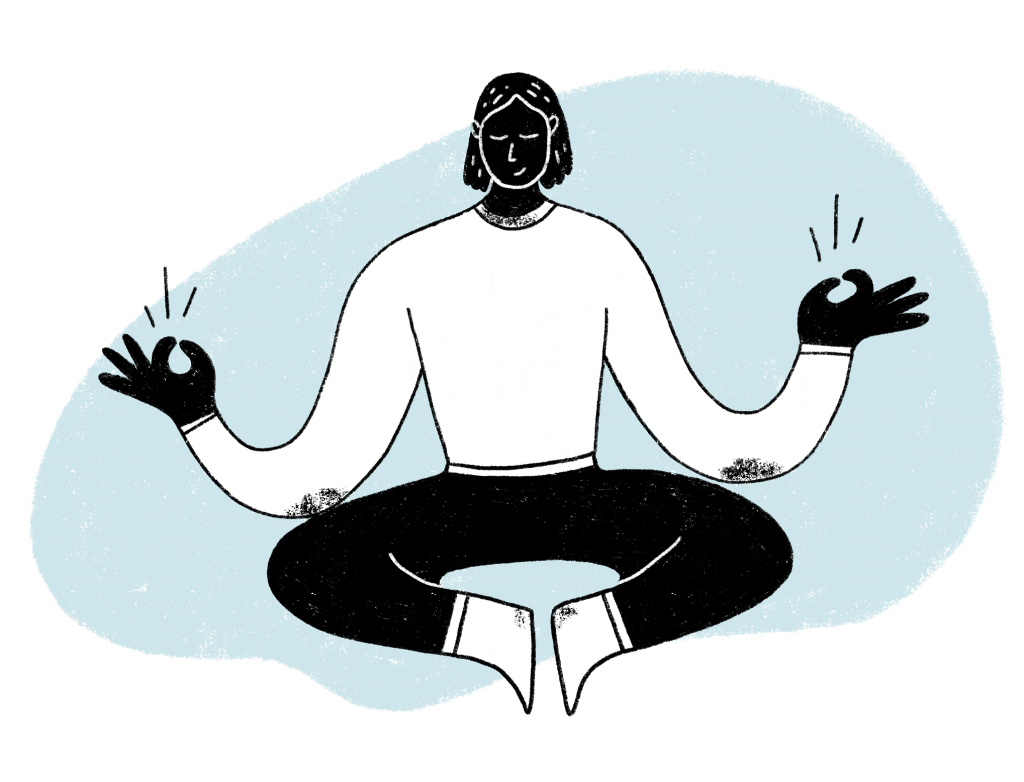
15 July 2025
6 min.
Self-management
14 April 2022
4 min.

Stress is part of our lives and we know it has real impacts on our health. However, stress is of real and important use to all living beings. Anxiety, on the other hand, can really get in the way and prevent us from living our lives to the fullest. How can we distinguish between stress and anxiety, and how can we identify signs of anxiety? This is what we will explore below.
Let’s first look at the difference between stress and anxiety.
Stress is a normal physiological response to an abnormal situation. For example, if the car we are following on the road brakes suddenly, we will experience stress. This stress is beneficial because it makes us react quickly to avoid a real danger.
Anxiety, on the other hand, is a psychological state triggered in response to a vague, unknown, or perceived threat. Let’s say we are following the same car and it is driving quite normally, but we can’t help but imagine that it will brake suddenly or make an unexpected move. The feeling we get is called anxiety.
It is important to mention that everyone experiences anxiety at some point in their lives, and this is completely normal. Depending on the situation or event that triggers it, anxiety will be felt at a different intensity.
Several elements or situations can be the cause of anxiety. To help us see more clearly, Sonia Lupien, director of the Centre for Studies on Human Stress in Montreal, has developed the acronym NUTS, which allows us to classify anxiety triggers into four categories:
Novelty – Have I ever experienced something similar?
Unpredictability – Can I predict what will happen?
Threat to the ego – Do I feel up to the task?
Sense of control – Do I have any power or influence over the event?
If we take the recent example of the COVID-19 pandemic, we can clearly see that the majority of us experienced situations belonging to these four categories on a daily basis. Indeed, we had no control over the situation. We did not know what measures would be imposed on us from one day to the next. Furthermore, we had never experienced such a situation and we were called upon to improvise in our professional and family lives.
It is also important to consider the accumulation of events or elements that, in the end, can generate such a high degree of stress that it can turn into anxiety.
As mentioned above, everyone can experience anxiety at one time or another. Anxiety affects four aspects of an individual: body, thoughts, emotions, and behaviours.
In a situation of anxiety, we can feel different sensations in our body, such as headaches, stomach aches, neck tension, poor sleep or insomnia, a feeling of fatigue, loss of energy, or a decrease in appetite.
Anxiety can also play a role in altering our thoughts. We may experience cognitive rigidity, that is, we are convinced that what we think is the truth and that nothing can convince us otherwise. We also tend to have a negative and gloomy view of our daily lives, to be under the influence of cognitive biases that cause us to misperceive reality, and to create all sorts of catastrophic scenarios about future events.
Some of the emotions that anxiety can cause in us are fear, worry and insecurity, sadness, irritability and mood swings, anger, and feelings of helplessness or discouragement.
There are a number of behaviours that can help us identify anxiety in a loved one or colleague. The two main behaviours we see in an anxious person are anticipation and avoidance. The anxious person may also have a tendency to have attention problems, and have difficulty organizing and making decisions. We also notice that a person experiencing anxiety often isolates and withdraws into themselves, which allows them to have a sense of control. Finally, aggressiveness and antagonism can also be observed in someone who is anxious.
Periods of anxiety, even for people who don’t experience them often, are really extremely difficult times. Being able to identify and name the anxiety is the first step towards getting out of that dark tunnel. Don’t hesitate to seek professional help in this situation.
If, on the other hand, what you are feeling is stress, know that you can learn to manage it well so that you can keep your stress at optimal and empowering levels!
